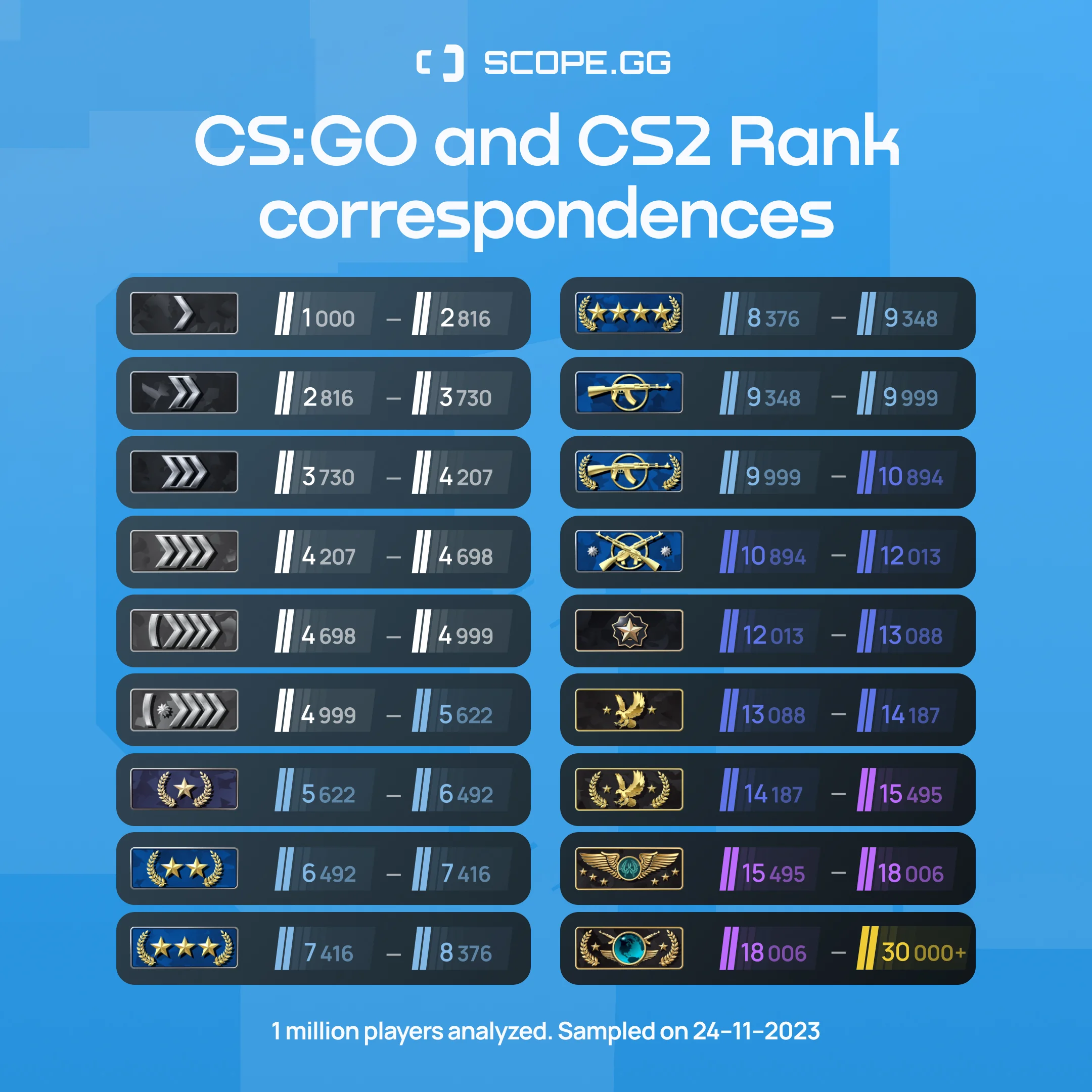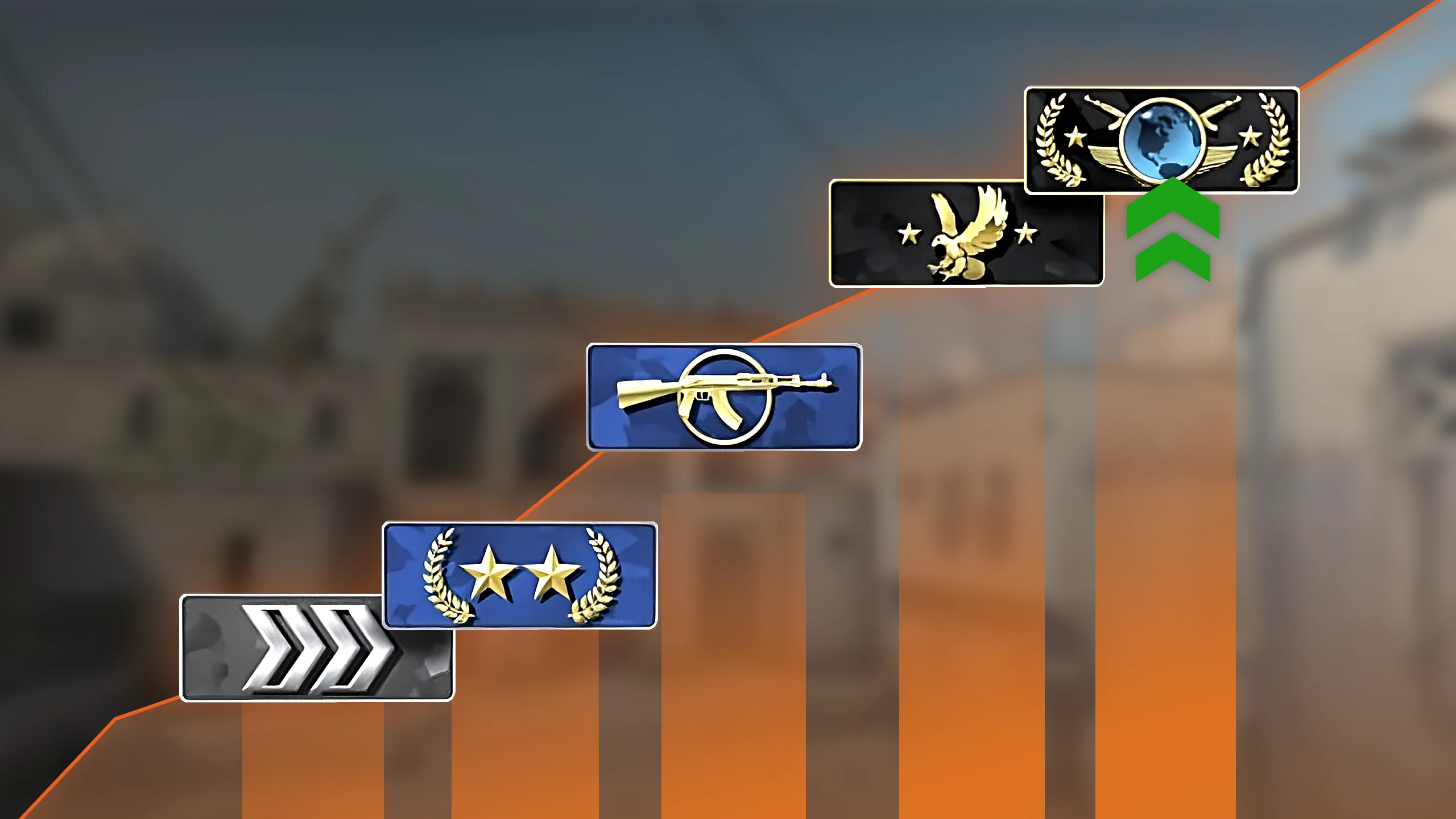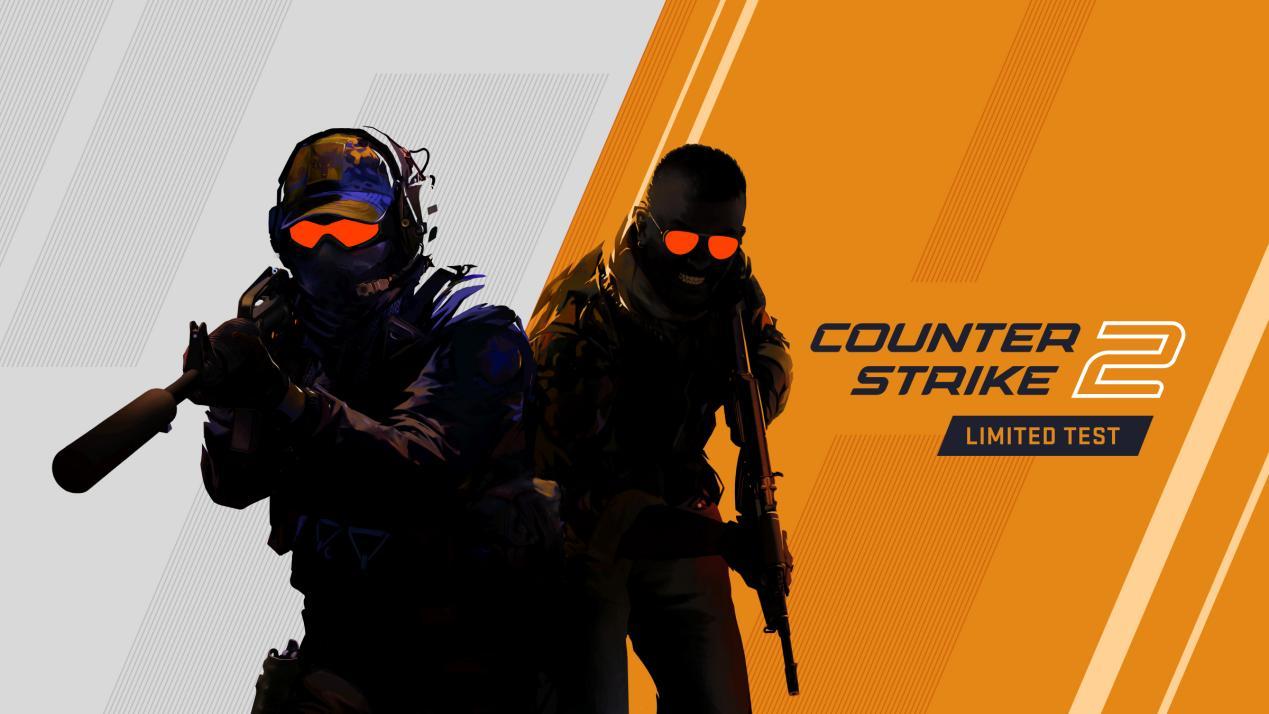
In the world of Counter-Strike: Global Offensive (CS: GO), ranks are a crucial aspect that determines your skill level and overall progress in the game. Whether you're a new player aiming to get your first rank or a seasoned veteran striving to climb higher, understanding CS: GO ranks is essential for improving your gameplay.
What Are CS: GO Ranks?
CS: GO ranks are a critical aspect of the game’s competitive mode, serving as a reflection of a player’s skill level and overall performance. These ranks are organized into distinct tiers, each representing a different level of proficiency.
Your rank not only indicates your abilities but also determines the opponents and teammates you’ll encounter in competitive matches. Let’s dive deeper into each of the CS:GO rank tiers:
1. Grey Silver I (S1) to Silver Elite Master (SEM):
The Silver ranks are the entry-level ranks in CS:GO, spanning from Silver I to Silver Elite Master. Players in these ranks are typically beginners or those still mastering the basics of the game. In the Silver tier, you’ll find a mix of new players and those who are still learning the fundamental mechanics, such as aiming, movement, and basic map knowledge.
Matches in this rank are often unpredictable, with a wide variance in player skill. Progressing through the Silver ranks requires improving your individual skills and gaining a better understanding of game strategies.
2. Light Blue Gold Nova I (GN1) to Gold Nova Master (GNM):
The Gold Nova ranks are considered the intermediate skill level, ranging from Gold Nova I to Gold Nova Master. Players at this level have a solid grasp of the game’s mechanics and are starting to refine their strategies. They understand the importance of teamwork, map control, and economy management.
Gold Nova players are more consistent in their gameplay, and matches in this tier are typically more competitive. To climb out of the Gold Nova ranks, players need to focus on improving their communication, positioning, and team play.
3. Blue Master Guardian I (MG1) to Master Guardian Elite (MGE):
The Master Guardian ranks, from Master Guardian I to Master Guardian Elite, signify a higher level of skill and experience. Players in this tier have honed their mechanics and possess a deep understanding of the game. They are proficient in map control, have good game sense, and can effectively use utility like grenades to gain an advantage.
Master Guardian players often exhibit strong aim and positioning, and they understand the importance of adapting to different situations in the game. To advance in these ranks, players need to consistently perform well, contribute to their team’s success, and continuously refine their strategies.
4. Blue Distinguished Master Guardian (DMG):
Distinguished Master Guardian is where players begin to showcase advanced skills and a comprehensive understanding of the game’s dynamics. Players in this rank are highly competitive and can consistently deliver strong performances in matches. They excel in decision-making, game sense, and communication.
DMG players are often just a step away from the elite ranks and are typically well-rounded, with the ability to carry games if needed. To move beyond DMG, players must demonstrate exceptional skill and teamwork, often focusing on refining the smallest details of their gameplay.
5. Purple & Pink Legendary Eagle (LE) to Legendary Eagle Master (LEM):
The Legendary Eagle ranks, which include Legendary Eagle and Legendary Eagle Master, are reserved for highly skilled players who can compete at a near-professional level. Players in these ranks have exceptional game sense, aim, and tactical knowledge. They are adept at reading the game and making quick, effective decisions that can turn the tide of a match.
LE and LEM players are often seen as the top competitors in the community, with a deep understanding of the game’s mechanics and strategies. Climbing to these ranks requires not just individual skill but also the ability to work seamlessly with a team.
6. Red Supreme Master First Class (SMFC):
Supreme Master First Class is one of the highest ranks in CS:GO, where players demonstrate top-tier skill and game sense. SMFC players are just a step below the Global Elite, often showcasing near-perfect aim, impeccable positioning, and an in-depth knowledge of every map.
At this level, the difference between players is often determined by minor details, such as reaction time, micro-adjustments in aim, and split-second decision-making. Matches at this rank are extremely competitive, with players consistently delivering high-level performances.
7. Gold Global Elite (GE):
The Global Elite is the pinnacle of CS:GO ranks, representing the top 0.75% of players in the game. Global Elite players are the best of the best, often comparable to professional players. They exhibit unparalleled skill, including exceptional aim, strategic thinking, and teamwork. These players have mastered every aspect of the game, from utility usage to map control, and they consistently perform at the highest level.
Reaching Global Elite requires dedication, practice, and a deep understanding of the game. Players in this rank are often involved in or on the verge of entering the professional scene.
Understanding these ranks and where you stand in them is key to improving in CS:GO. Each rank represents a different stage of your journey as a player, and as you progress, you’ll need to adapt and refine your skills to climb the competitive ladder.

The Factors That Affect CS:GO Ranks
Several factors influence your rank in CS:GO, and understanding them can help you improve your standing:
1. Match Performance: Your individual performance in each match is crucial. This includes metrics such as the number of kills, deaths, assists, and MVPs (Most Valuable Player awards). Consistently high performance in these areas will positively impact your rank. It's not just about racking up kills, but also about contributing to your team’s success in various ways.
2. Win-Loss Ratio: Winning matches is the most direct path to ranking up. Each victory increases your chances of moving up the ranks, while losses can set you back. However, not all wins and losses are equal; the impact on your rank can vary depending on the skill levels of your opponents and teammates.
3. Round Impact: CS:GO is played in rounds, and how you perform in key rounds—especially in clutch situations where the odds are against you—can significantly influence your rank. Winning crucial rounds, such as those that decide the outcome of a match, will have a greater impact on your rank than rounds where the outcome is less consequential.
4. Teamwork and Communication: CS:GO is a team-based game, and your ability to work effectively with your teammates can make a big difference. Good communication, sharing information about enemy positions, and coordinating strategies are all essential for winning matches and improving your rank. A player who excels in teamwork can often outperform others who focus solely on individual stats.
5. Consistency: Playing regularly and maintaining a consistent level of performance is vital for ranking up. Sporadic play or inconsistent performance can lead to fluctuations in your rank. By staying active and continuously refining your skills, you increase your chances of steady rank progression.
How Can You Get Your First CS:GO Rank?
To earn your first CS:GO rank, you need to complete a series of competitive matches. Here’s how to get started:
- Play Placement Matches: To get your initial rank, you must play and complete ten placement matches in the Competitive mode. These matches will determine your starting rank based on your performance.
- Focus on Performance: During these placement matches, aim to perform well by contributing to your team’s success with kills, assists, and strategic plays.
- Stay Consistent: Winning most of your placement matches can place you in a higher starting rank. However, avoid focusing solely on kills; teamwork and round wins are equally important.
- Play with a Team: If possible, play your placement matches with a consistent team or friends. Communication and teamwork are often better with familiar players, increasing your chances of winning.

Conclusion
CS:GO ranks are an essential part of the game that reflects your skill level and progress. Understanding the ranking system, the factors that affect your rank, and how to earn your first rank can help you improve your gameplay and climb the competitive ladder. Whether you’re starting in the Silver ranks or aiming for Global Elite, consistent practice, teamwork, and performance are key to success. Keep playing, stay focused, and enjoy the journey of ranking up in CS:GO!

Boost Your Game with LagoFast for Epic Speed
Play harder, faster. LagoFast game booster eliminates stutter and lags on PC, mobile, or Mac—win every match!
Quickly Reduce Game Lag and Ping!
Boost FPS for Smoother Gameplay!
